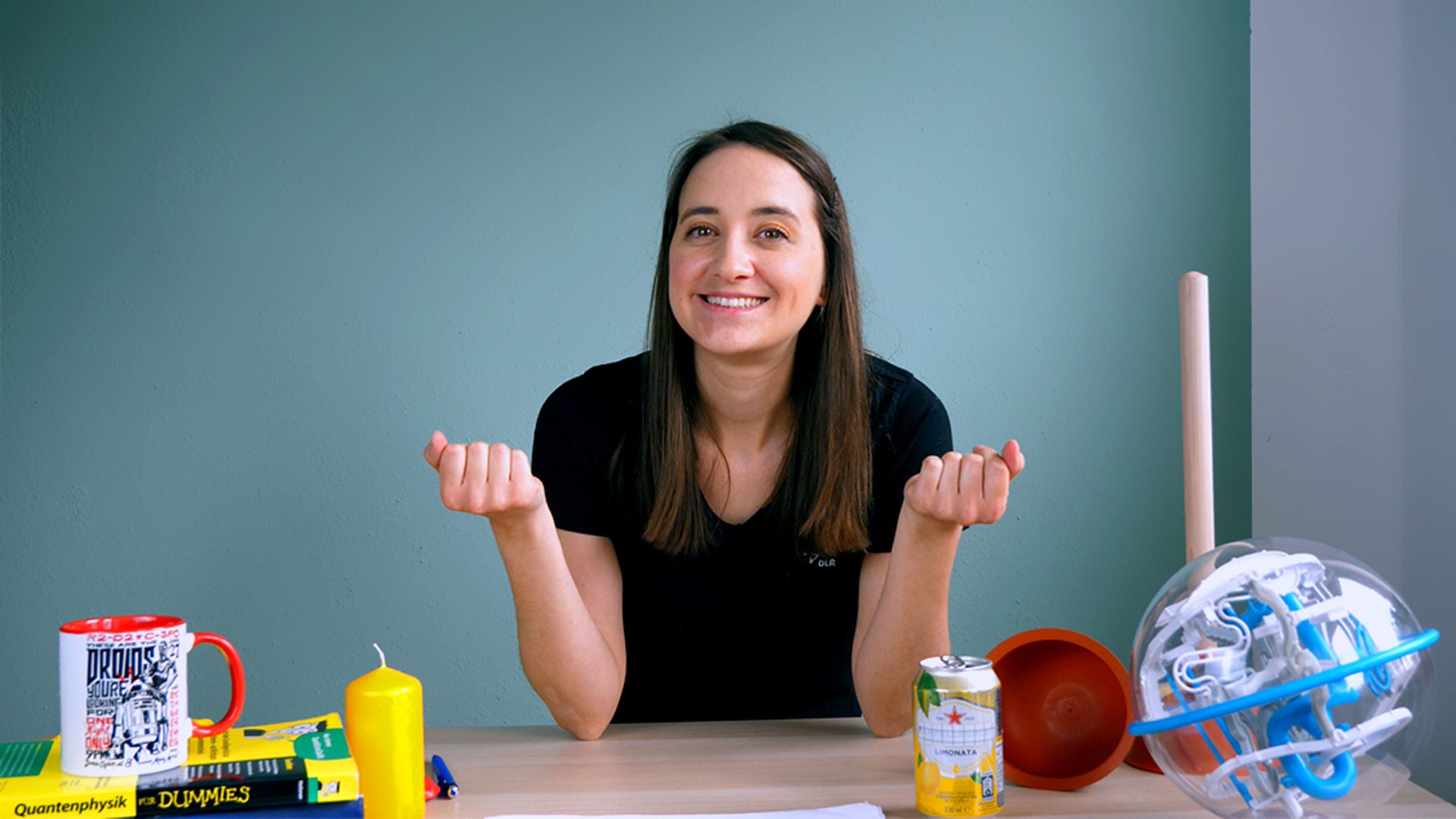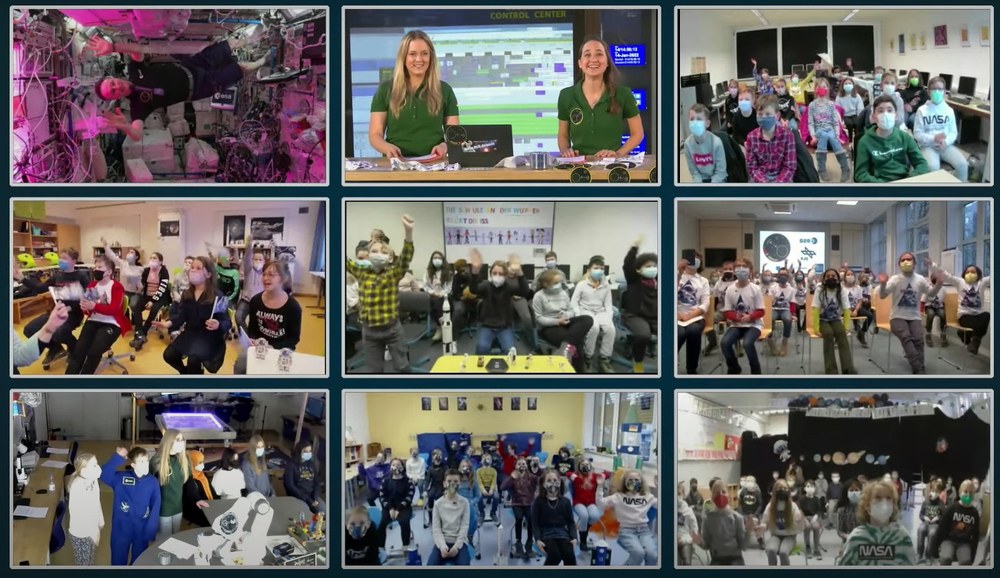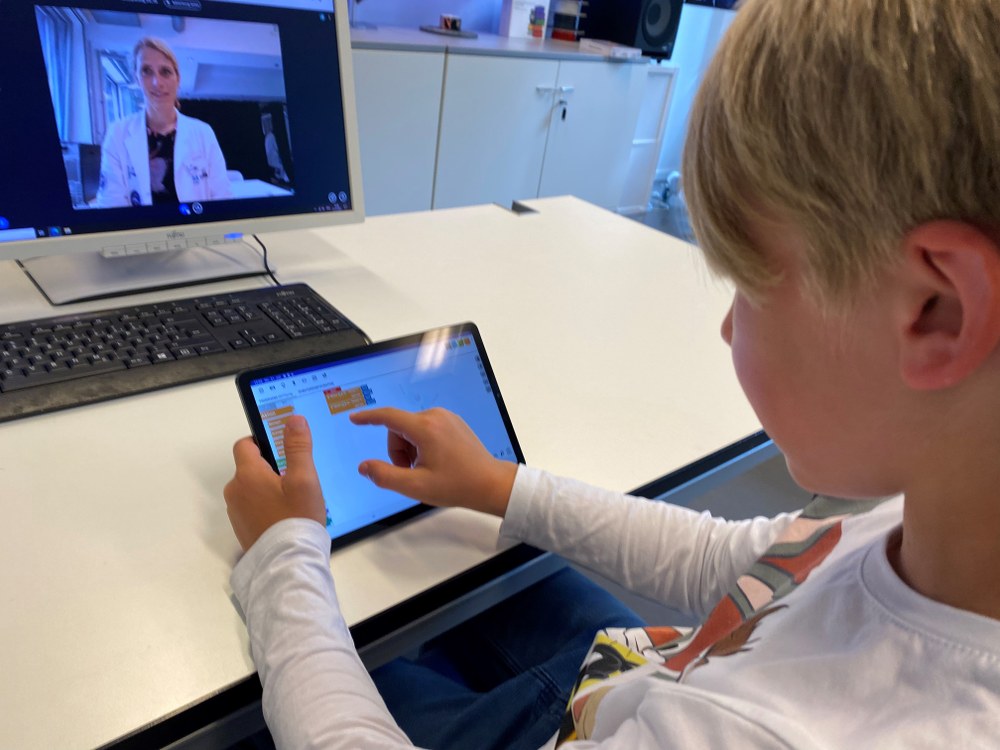The Space Station in the classroom

The students watch spellbound as a drop capsule falls into the depths at the DLR_School_Lab in Cologne: How will water and air mix in the small glass container when its contents become weightless in free fall? Meanwhile, the DLR_School_Lab in Jena is showing young people how a smartphone can be turned into a polarising microscope with just a few tools, allowing them to examine the surfaces of meteorites and onion peels. In Oberpfaffenhofen, a guided tour through the German Space Operations Center is a source of great enthusiasm. All of these experiences share one thing – during the activities, the students are not on site but online from their classrooms. These are 'digital lessons', developed by DLR's Education and Outreach programme during the COVID-19 pandemic, and conducted many times since then.
While this was initially the best possible substitute for in-person teaching, which was interrupted in March 2020, the online format today forms an integral part of the repertoire of the DLR's student laboratories. These programmes continue to be expanded further even though regular school attendance has resumed.
Hands-on is more fun
Each year, approximately 40,000 schoolchildren attend the 15 DLR_School_Labs, located at DLR sites and partner universities. The demand from schools is so high that waiting times are sometimes longer than a year. Almost 450,000 children and young people have visited the school laboratories since the opening of the first one. Hands-on experimentation is at the heart of the labs. Under expert supervision, the pupils carry out experiments, simplified for each age group, looking at current research topics, from electric flight using fuel cells to satellite Earth observation, from the use of solar energy to avoiding congestion on the road. Our young explorers can investigate an artificial Mars landscape with a small rover, be air traffic controllers, examine composite materials, 'bake' an artificial comet in a small space chamber, optimally align solar cells with a light source – in short, immerse themselves in the world of science, learning new things and discovering that research can be exciting and great fun.
The global response to the Coronavirus pandemic brought an abrupt halt to the programme. Instead of face-to-face set-up, online alternatives were developed on the basis of a study-of-concept, including a nationwide survey of teachers and clarification of many questions about the technology used, data protection and many other details. Approximately 10,000 schoolchildren have now taken part in DLR's 'digital lessons'. Newly developed didactic videos have been viewed more than 60,000 times and our other digital formats are also very popular.

Interest in Germany and beyond
"I still have to give three lectures to school classes today," says Richard Bräucker in a hurry from the Monday Skype meeting. The long-time Head of the Cologne DLR_School_Lab is in his home office, while students listen to him from Dresden, Konstanz and other places, showering him with questions – and sometimes even persuading him to 'add on' another lesson. The same thing happens to all the other heads of the DLR_School_Labs, Frank Fischer from Braunschweig among them. School after school signs up for his online presentation on the International Space Station ISS. The school laboratory in Bremen oversees school projects lasting several weeks and regularly gives tips online. In Göttingen, laboratories and hangars that are otherwise inaccessible to visitors can be opened up to school classes in a virtual live tour. In this way, schools can experience the DLR school laboratories, for which the distances to travel would otherwise be much too great. National borders are no object either – online connections have been made from the DLR_School_Lab in Berlin to the German School in Shanghai and to New Delhi. Elementary schools and kindergartens also make use of DLR's online services. "These activities were a real highlight for our children during lockdown," wrote one teacher at a daycare center in Odenwald to Tobias Neff, head of the DLR_School_Lab in Lampoldshausen.
At the other end of the education chain, university students also benefit from this new line of activity: International summer schools on space propulsion and space weather, which otherwise take place on site in Lampoldshausen or Neustrelitz, were recently held in digital form – with participants from many countries and speakers connected from places like Kourou in South America, South Africa and Huntsville in the USA, among others. University DLR_School_Labs at Aachen, Augsburg, Darmstadt, Dortmund, Dresden and Hamburg are also active online with exciting lectures by experts, teleworkshops specially for girls, learning opportunities on social media platforms such as Instagram, and entirely new formats such as a 'digital escape room quiz!'
New formats make it possible to continually expand the offer
With the online formats, DLR has developed a new form of addressing young target groups, which will continue after the return to face-to-face teaching at the DLR_School_Labs. In doing so, they deliver well-grounded and fascinating content for digitalisation in education, thus supporting this important political objective. At the same time, there is potential to engage even more young people in research. Going far beyond career-oriented aspects, the aim is to promote a constructive and positive attitude towards science among the younger generation – a 'learning goal' that is perhaps more important than ever.
A article by Dr. Volker Kratzenberg-Annies from the DLRmagazine 171. Until October 2022 he was the DLR Executive Board representative for education and outreach.


